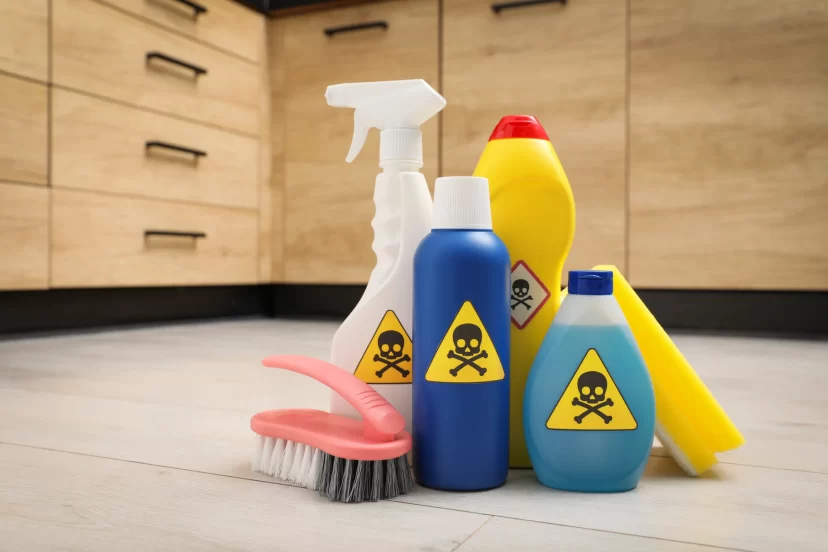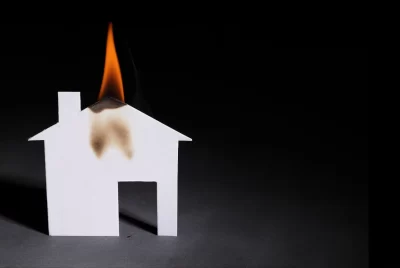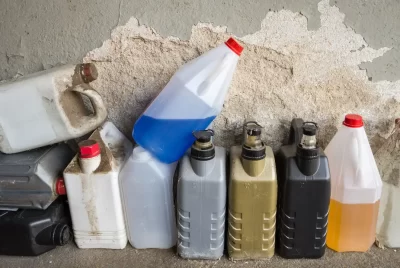Safe and Sound: A Guide to Proper Storage of Chemicals in Your Home
When it comes to storing chemicals in the home, proper storage can be a serious matter for the safety of everyone in the household. Chemicals are used in a variety of everyday products such as cleaning agents, paint, and pesticides. While they may be helpful for their intended purpose, improper storage can lead to serious risks and dangers.
The ABCs of Common Household Chemicals
You’d be surprised by how many common household items contain chemicals that could pose risks if not handled or stored properly.
Some of these items include:
Bleach
Bleach is a powerful oxidizing agent and can pose a risk if mixed with other chemicals, particularly ammonia or acids. Never mix bleach with other chemicals unless directed to do so by a product’s instructions.
Ammonia
Ammonia is found in many cleaning products and can cause irritation to the eyes and respiratory system. Just like bleach, never mix ammonia with other chemicals, especially bleach, as it can produce harmful gases.
Drain Cleaners & Oven Cleaners
These products often contain powerful acids or alkalis that can cause chemical burns. Always use these products in a well-ventilated area and avoid contact with skin and eyes.
Laundry Detergent Pods
These handy little pods can be a risk due to their appealing look to children. Store them in a high place where children can’t reach them and always keep them in their original, sealed container.
Certain Types of Cleaning Products
Cleaning products can contain a wide range of chemicals, some of which can be harmful. Look at their labels to check and see what their active ingredients are so you can make an informed decision as to how you will store them.
Pesticides
Pesticides should be stored in a locked cabinet, in their original containers. Always follow the manufacturer’s instructions for their handling, care and disposal.
Antifreeze
Antifreeze, often used in car maintenance, can be harmful or even fatal if ingested.
Pool Chemicals
Pool chemicals can be highly reactive. Store them separately from other household chemicals. Never mix different types of pool chemicals, even if they are used for the same purpose.
Batteries
Batteries, especially rechargeable ones, can pose a fire risk if damaged or improperly stored. Store batteries at room temperature, away from metal objects.
10 Best Storage Practices
Apart from these individual guidelines for each chemical, there are some general storage best practices that you should follow as much as possible:
- Original Containers: Always store chemicals in their original containers to avoid confusion and to have access to the manufacturer’s instructions and warnings.
- Ventilation: Chemicals should be stored in a well-ventilated area to prevent the build-up of harmful vapors.
- Child-Proof: Make sure that all chemicals are stored out of the reach of children. If possible, use child-proof locks on cabinets where chemicals are stored.
- Separation: Avoid storing different types of chemicals together. Some chemicals can react with each other and cause harmful effects, so it’s best to keep them separated. If you must store different chemicals in the same area, make sure they are organized in a way that prevents any possibility of accidental mixing. Here is a list of all incompatible chemicals that should be kept separate from each other.
- Temperature Control: Keep chemicals in a cool, dry place unless the manufacturer’s instructions specify otherwise. Extreme temperatures, both hot and cold, can cause some chemicals to become unstable.
- Shelving: When using shelves to store chemicals, make sure they are sturdy and not likely to tip over. It’s also best to avoid storing chemicals on high shelves where they might fall and spill.
- Purpose-built Storage cabinets: Safety Storage cabinets offer a safe, EPA-friendly method for storing potentially hazardous chemicals.
- Lighting: Ensure your storage area is well-lit. Good lighting reduces the risk of mistakes, like grabbing the wrong bottle or not noticing a spill.
- Emergency Equipment: Keep a fire extinguisher nearby and know how to use it. It’s also a good idea to have a first aid kit readily available in case of exposure to harmful chemicals.
- Expiration Dates: Keep an eye on the expiration dates of your chemicals. Once a chemical passes its expiration date, its stability and effectiveness can no longer be guaranteed. Dispose of expired chemicals in a safe and environmentally friendly way.
Proper disposal methods for empty containers
When disposing of empty chemical containers, you should follow proper disposal methods as residual traces may result in harm even if the container looks clean. You should rinse out each chemical container with water before disposing it off according to local guidelines.
You may also want to wipe down any unused chemicals so that none of it remains on surfaces where children and pets can accidentally come into contact with them. By following these simple steps, you can make sure that your home remains safe and hazard-free while storing household chemicals.
Final Words
Take time today to inspect where your different types of products are located in order to make sure your storing household chemicals are stored safely. This one-time investment will go a long way towards creating peace-of-mind for an entire lifetime.



